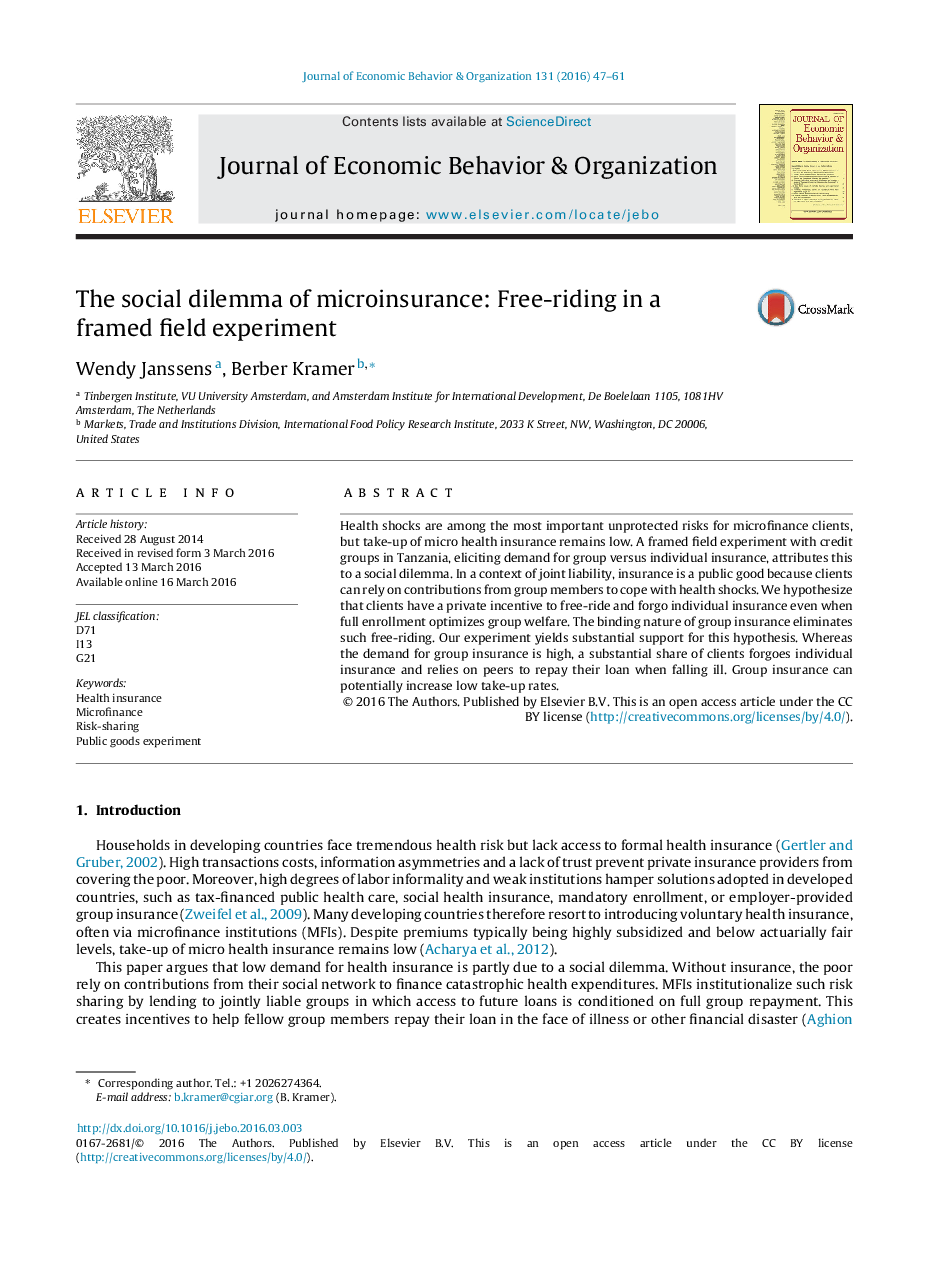| Article ID | Journal | Published Year | Pages | File Type |
|---|---|---|---|---|
| 5034537 | Journal of Economic Behavior & Organization | 2016 | 15 Pages |
Health shocks are among the most important unprotected risks for microfinance clients, but take-up of micro health insurance remains low. A framed field experiment with credit groups in Tanzania, eliciting demand for group versus individual insurance, attributes this to a social dilemma. In a context of joint liability, insurance is a public good because clients can rely on contributions from group members to cope with health shocks. We hypothesize that clients have a private incentive to free-ride and forgo individual insurance even when full enrollment optimizes group welfare. The binding nature of group insurance eliminates such free-riding. Our experiment yields substantial support for this hypothesis. Whereas the demand for group insurance is high, a substantial share of clients forgoes individual insurance and relies on peers to repay their loan when falling ill. Group insurance can potentially increase low take-up rates.
